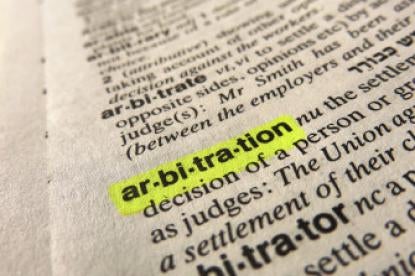Another round in the seemingly never-ending arbitration bout has been decided, and this one appears to go in favor of companies seeking to stave off class arbitration. Recently, the Fourth Circuit joined the Third and Sixth Circuits by holding that courts, not arbitrators, decide the issue of whether an arbitration agreement permits class arbitration, unless the parties “clearly and unmistakably” agreed otherwise. Dell Webb Communities, Inc., v. Carlson, No. 15-1385, ___ F.3d ___, 2016 WL 1178829 (4th Cir. Mar. 28, 2016). Although the Supreme Court has not yet decided this issue, the decisions in Dell Webb and the other federal appellate cases will assist companies seeking individual arbitration by providing for meaningful judicial review of this important question.
The Match Is Set
The case took a circuitous route on its way to the Fourth Circuit. Roger and Mary Jo Carlson signed an agreement for construction of a home by Pulte, (the parent company of Dell Webb). The agreement included a mandatory arbitration clause that did not expressly state whether class claims were subject to arbitration. When the Carlsons were not satisfied with the construction quality, they filed suit in state court, bringing claims on behalf of themselves and about 140 other purchasers.
The trial court denied Pulte’s motion to enforce the arbitration clause, but the state appeals court reversed, holding that the claims should be arbitrated. The Carlsons then filed an arbitration demand with the American Arbitration Association, seeking class arbitration.
Pulte then filed a declaratory judgment action in federal court, asserting that the arbitration clause did not permit class arbitration. The district court dismissed Pulte’s complaint, holding that class arbitrability was a procedural question for the arbitrator to decide. Meanwhile, the arbitrator ruled that the agreement authorized class arbitration, but stayed that ruling pending resolution of the federal litigation.
A Knockdown From the Fourth Circuit
The Fourth Circuit reversed, holding that “whether an arbitration clause permits class arbitration is a gateway question of arbitrability for the court.” The court remanded the case to the district court for a determination of class arbitrability.
The Fourth Circuit noted that although the Supreme Court has not decided the issue, “the evolution of the Court’s cases are but a short step away from the conclusion” that questions of classwide arbitrability require judicial review.
The Fourth Circuit also observed that the question of who decides class arbitrability is critical because class arbitration is so different from bilateral arbitration. The benefits parties expect from arbitration—“less rigorous procedural formalities, lower costs, privacy and confidentiality, greater efficiency, specialized adjudicators, and . . . finality”—are “dramatically upended in class arbitration.” Classwide arbitration brings with it higher risks and greater costs to defendants. And given the high-stakes nature of classwide arbitration, the limited judicial review of arbitrators’ decisions is particularly problematic. For all of these reasons, the court concluded that “whether an arbitration clause permits class arbitration is a gateway question of arbitrability for the court.”
Del Webb represents the third federal appellate decision reaching the same conclusion.[1] Although some district courts have held otherwise, no federal appellate court has held that classwide arbitrability is a question for the arbitrator—unless the arbitration agreement clearly provides that the arbitrator decides the issue.
Of course, companies will still face uncertainty in circuits that have not resolved this question. Companies that do not want classwide arbitration should therefore expressly prohibit classwide arbitration in their arbitration agreements. But when there is no such explicit language, these appellate decisions provide the added assurance of meaningful judicial review before a company can be forced into classwide arbitration.
[1] See Reed Elsevier, Inc. ex rel. LexisNexis Div. v. Crockett, 734 F.3d 594, (6th Cir. 2013); Opalinski v. Robert Half Int’l Inc., 761 F.3d 326 (3d Cir. 2014).


 i
i


